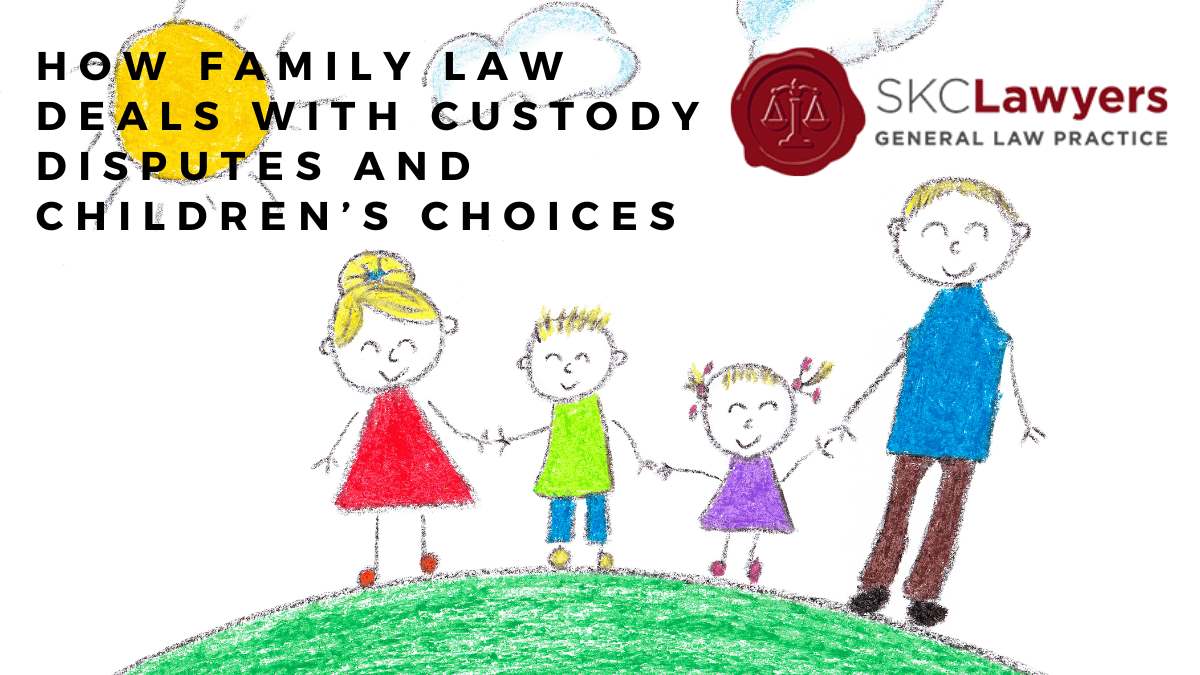
Child custody disputes can be emotionally challenging, and family law aims to ensure that custody arrangements prioritise the child’s well-being. In Queensland, courts focus on creating fair and practical parenting arrangements that support the best interests of the child.
Understanding how child custody arrangements and decisions are made and how children’s preferences are considered, can help parents navigate the legal process effectively.
Understanding Child Custody
Custody of children refers to the legal and practical responsibility for a child’s care and upbringing. In Australia, the Family Law Act 1975 outlines different custody arrangements:
- Sole Custody – One parent has full decision-making authority and primary care of the child.
- Joint Custody – Both parents share responsibility in making decisions for the child’s upbringing, even if the child lives primarily with one parent.
Instead of the term “custody,” Australian family law uses parenting arrangements and parental responsibility to describe how children will be cared for post-separation. Shared parental responsibility is generally preferred unless it is deemed unsafe or impractical. This is not to be confused with shared care of a child.
Children’s Choices in Custody Decisions
Family courts acknowledge that children may have preferences regarding where they live and how much time they spend with each parent. However, a child’s wishes are not the sole determining factor in custody decisions. Courts consider:
- Age and Maturity – Older children and teenagers’ opinions carry more weight, while younger children’s views are assessed based on their ability to express informed preferences.
- Emotional and Physical Well-being – A child’s choices are evaluated alongside their overall well-being, safety, and stability.
- Parental Influence – Courts assess whether a child’s views are their own or have been influenced by a parent.
The court may appoint an Independent Children’s Lawyer (ICL) to represent the child’s best interests and ensure their voice is heard in a fair and unbiased manner.
Legal Framework for Custody Disputes
When parents cannot agree on child arrangements, family court intervention may be necessary. The process typically involves:
- Family Dispute Resolution (FDR) – Mediation is encouraged to help parents reach an amicable agreement without court intervention.
- Parenting Plans and Consent Orders – If an agreement is reached, it can be formalised as a legally binding consent order.
- Court Proceedings – If disputes remain unresolved, the family court makes care and welfare decisions based on the child’s best interests.
A child custody lawyer plays a crucial role in guiding parents through this process, ensuring their rights are protected while prioritising the child’s well-being.
Child disputes require careful legal consideration to create stable, child-focused parenting arrangements. Courts prioritise the best interests of the child while considering their preferences where appropriate. Seeking professional family law services can help parents navigate the care and welfare of children and achieve fair outcomes.
Need Legal Assistance?
At SKC Lawyers, we provide experienced legal support for child custody disputes. Contact us today to ensure the best outcome for you and your child.
